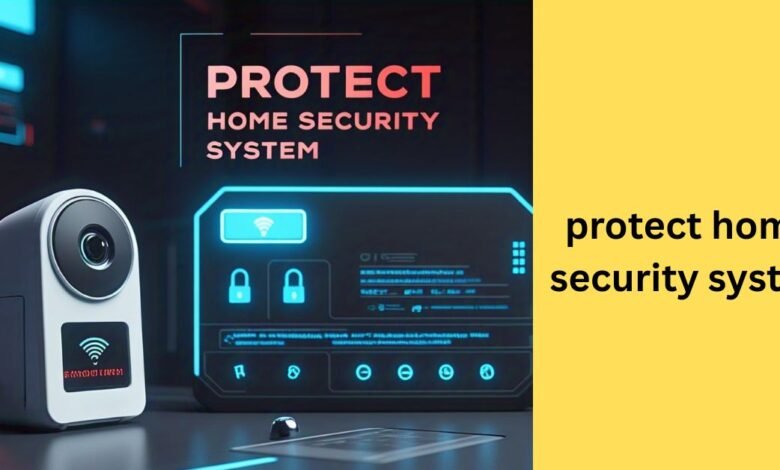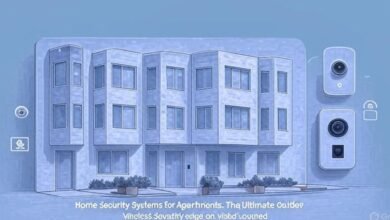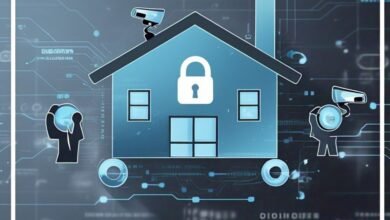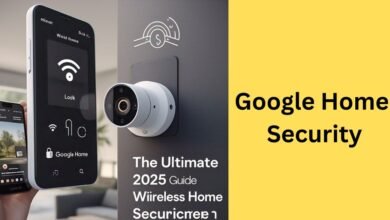How to Protect Home Security System: A Complete Guide

Why You Must Protect Your Home Security System
Your home’s first line of defense is your security system—but what if that system itself becomes a target? If you don’t take the right steps to protect home security system infrastructure, hackers could easily compromise it, leaving your home vulnerable.
Table of Contents
Growing Threats to Home Security Systems
Smart homes are convenient—but they’re also attractive to cybercriminals. Devices like smart locks, cameras, and alarms can become security risks if you don’t actively protect home security system components from digital threats.
What Happens If You Don’t Protect Your Home Security System?
A compromised system isn’t just a technical failure—it’s a major risk to your safety and privacy. Here’s what could happen:
- Unauthorized access to security cameras
- Disabling of alarm systems
- Remote unlocking of smart doors
If you don’t protect home security system vulnerabilities, you could be making it easy for intruders.
Types of Home Security Systems (and How to Protect Them)
Not every home security system is the same. Understanding their differences helps you know how to protect home security system setups more effectively.
Wired vs. Wireless Systems
- Wired systems are generally more stable, but vulnerable to physical tampering.
- Wireless systems are easier to install but must be secured from hacking attempts.
Smart Home Security Systems
Smart systems offer convenience and remote monitoring—but they rely on internet connectivity, which means you need to protect home security system networks from cyber threats.
DIY vs. Professionally Installed Systems
- DIY systems are affordable but may lack advanced security protocols.
- Professional installations often come with better protection, but require updates and monitoring.

Common Weak Points in Your Security System
To fully protect home security system effectiveness, start by addressing these common vulnerabilities:
Weak Passwords
Leaving default usernames and passwords in place is like leaving your front door unlocked.
Outdated Firmware
Old software can have unpatched security flaws. Regular updates help protect home security system software integrity.
Poor Wi-Fi Security
Your home Wi-Fi is the backbone of your smart devices. If it’s not secure, neither is your system.
Physical Tampering
Outdoor cameras and sensors should be physically secure to ensure they can’t be disabled easily.
How to Protect Home Security System: Step-by-Step
Change Default Credentials
Always replace default logins with strong, unique usernames and passwords.
Enable Two-Factor Authentication
Two-factor authentication adds an essential layer of protection to protect home security system access points.
Keep Firmware and Apps Updated
Check your device apps monthly or enable auto-updates to fix vulnerabilities quickly.
Strengthen Your Wi-Fi Network
To fully protect home security system operations:
- Use WPA3 encryption
- Avoid using outdated protocols like WEP
- Create a guest network exclusively for smart home devices
Limit Access
Only authorized users should have access. Remove old or unused accounts from the system.
Add Physical Reinforcements
- Use tamper-resistant housings for outdoor units
- Place control panels out of view to deter direct interference
Vivint Smart Home Security System
Advanced Ways to Protect Home Security System
If you want maximum protection, go beyond the basics:
Use a VPN for Remote Access
A Virtual Private Network encrypts all communication, helping you protect home security system traffic from prying eyes.
Install a Firewall
Whether software or hardware-based, a firewall offers another security layer.
Conduct Regular Audits
Periodically review system logs and test for vulnerabilities. This proactive approach can protect home security system performance long-term.
What to Do If Your System Is Breached
Even with precautions, no system is foolproof. If your system is compromised:
- Disconnect it from the internet immediately
- Reset all credentials
- Contact your security provider
- Consult with a cybersecurity professional if needed
Acting fast can protect home security system damage control and prevent deeper breaches.
Final Thoughts: Stay One Step Ahead
To truly protect home security system reliability, think of security as a continuous process, not a one-time setup. Regular updates, user management, and vigilance are your best defense against digital and physical threats.
FAQs: How to Protect Home Security System
1. Can hackers really access my home security cameras?
Yes. If you don’t protect home security system credentials and network, hackers can gain access.
2. How often should I update the software?
Ideally, check monthly. Enable automatic updates to protect home security system functionality without delay.
3. Is a wired system more secure than a wireless one?
Wired systems are harder to hack remotely but easier to tamper with physically. Both need active steps to protect home security system stability.
4. What makes a strong password?
A good password should include uppercase and lowercase letters, numbers, and symbols.
5. Should I use a separate network for security devices?
Absolutely. Isolating them on a guest network helps protect home security system infrastructure from wider network vulnerabilities.




